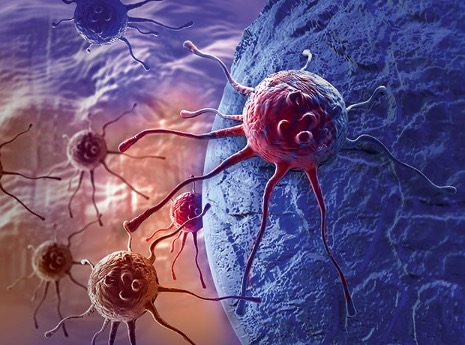Study finds mechanical changes in tumour tissue offer new insights for cancer research
May 6, 2024
Source: drugdu
 292
292
 Bladder cancer, including papillary tumours, is the ninth most common cancer type worldwide
Bladder cancer, including papillary tumours, is the ninth most common cancer type worldwide
Researchers from ETH Zurich and University Hospital Basel have revealed new insights for cancer research when focusing on mechanical changes in tumour tissue after investigating the early stages of bladder cancer.
Researchers aimed to understand what governs the direction in which bladder tumours grow and whether it plays a role in malignant and benign formations.
Currently the ninth most common cancer type worldwide, bladder cancer occurs when cells in the bladder start to grow without control.
Papillary tumours, long, slender benign or malignant tumours that grow from tissue that lines the inside of the organ, are usually easy to treat, while muscle-invasive bladder cancer, which spreads into the thick muscle of the bladder wall, requires surgical removal of the bladder.
Similar to bronchioles in the lungs, researchers wondered whether molecular mechanisms could be responsible for creating the structures of papillary bladder tumours and found that “the molecular drivers in the formation of lung tissue are quite different from those in the development of bladder cancer,” said Dagmar Iber, professor of computational biology, department of biosystems science and engineering, ETH Zurich.
Using computer models, biopsies from tumour patients and tissue samples harvested from experiments with mice, researchers found that cancerous growth is accompanied by changes in the relative stiffness of the different layers of the bladder walls.
The flexible bladder wall is made up of three layers: a soft epithelial layer, a stiffer membrane that provides mechanical stability and a softer layer of connective tissue.
Influenced by mechanical factors as opposed to biochemical factors as seen in lung tissue, different forms of cancer can develop, forming the basis for papillary tumours.
The membrane that separates the epithelium forms fine wrinkles and narrow folders, resulting in tissue damage that encourages the growth of malignant tumours in the inner layers.
As cells secrete protein fibres and enzymes that influence and modify the extracellular matrix that surrounds them, researchers should “focus more closely on [the] biomechanics and the chemical signalling pathways that affect it,” said Iber.
https://pharmatimes.com/news/study-finds-mechanical-changes-in-tumour-tissue-offer-new-insights-for-cancer-research/
By editorRead more on
- Gusekirumab Injection Accepted by CDE, Multiple Pipelines Advancing Simultaneously March 4, 2026
- Yifan Pharmaceutical’s teriparatide injection has been accepted by the CDE (Center for Drug Evaluation), adding a new domestic player to the osteoporosis treatment field March 4, 2026
- //news.yaozh.com/archive/47318.html PD-1 sales surge March 4, 2026
- A major breakthrough! Roche’s oral BTK inhibitor achieves its third Phase III clinical trial victory, a game-changer in the multi-billion dollar MS (manufactured pharmaceuticals) market. March 4, 2026
- GB19 Injection Approved for Clinical Trials of Cutaneous Lupus Erythematosus March 4, 2026
your submission has already been received.
OK
Subscribe
Please enter a valid Email address!
Submit
The most relevant industry news & insight will be sent to you every two weeks.



